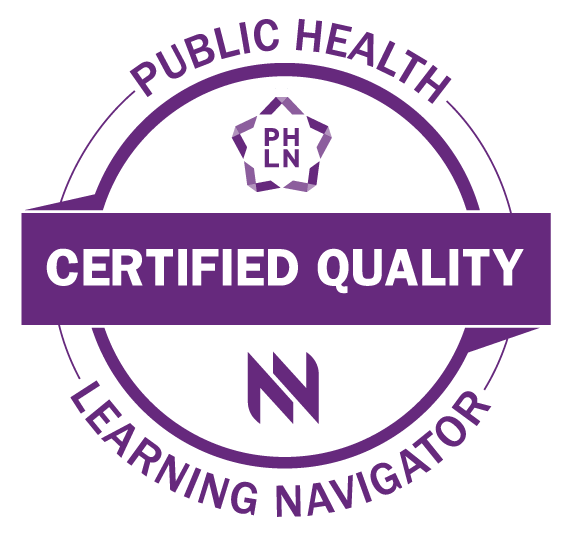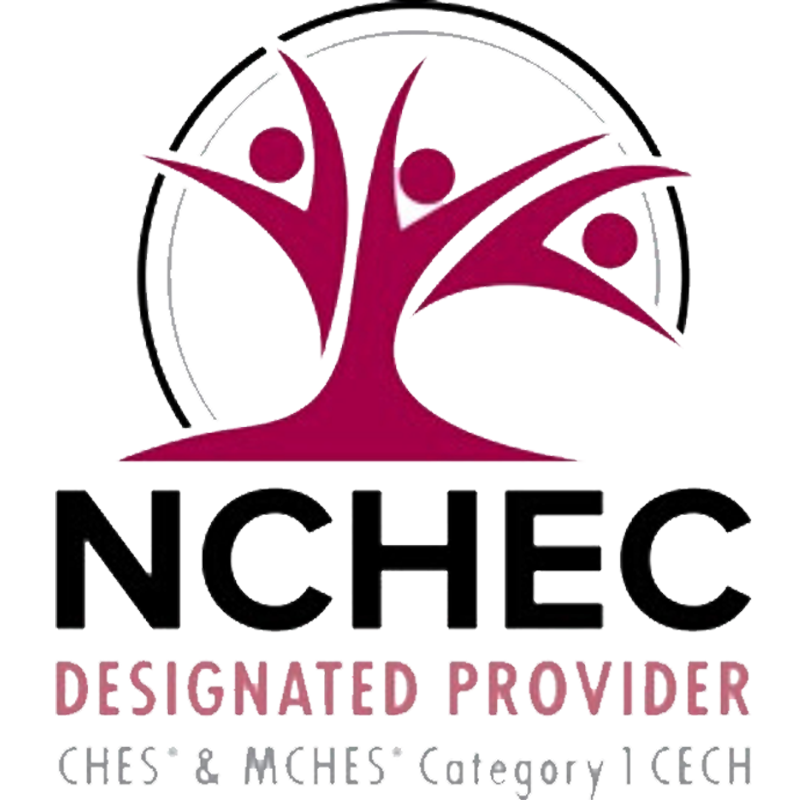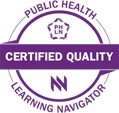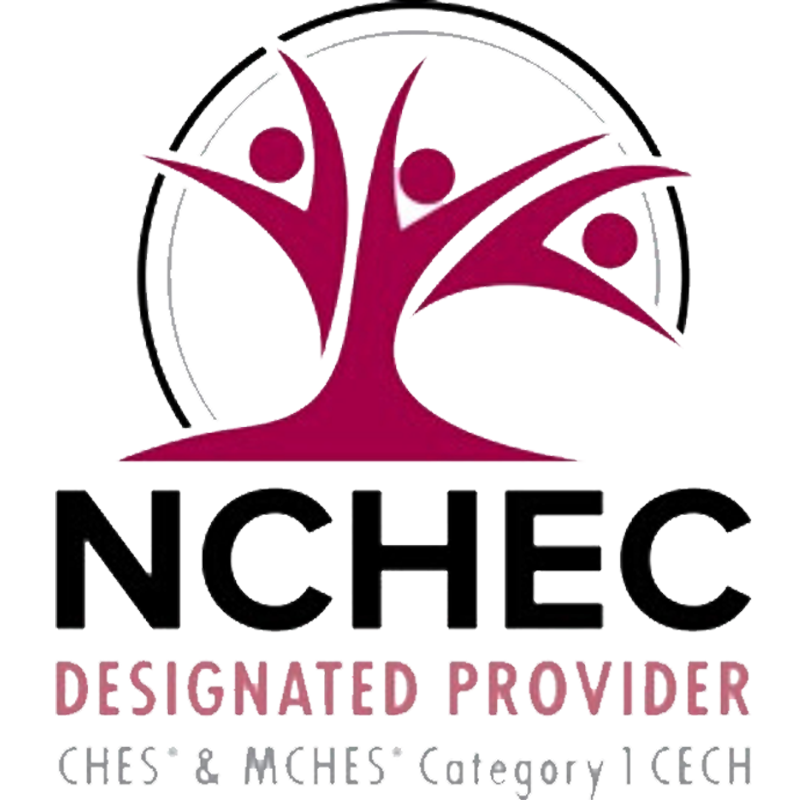
Coaching Skills
How can you balance employee evaluation and employee coaching to become a more effective manager?




Enroll
Course Information
- Format: Self-paced
- Price: Free
- Length: 1.0 hours
- Credential(s) eligible for contact hours: Sponsored by New England Public Health Training Center (NEPHTC), a designated provider of continuing education contact hours (CECH) in health education by the National Commission for Health Education Credentialing, Inc. This program is designated for Certified Health Education Specialists (CHES) to receive up to 1 total Category I continuing education contact hours. Maximum advanced-level continuing education contact hours are 0. Provider ID: 1131137 Event ID: SS1131137_CS.
If you are not seeking CHES contact hours, if you complete the evaluation, you will receive a Certificate of Completion. The Certificate will include the length of the course. - Competencies: Management and Finance Skills
- Learning Level: Awareness
- Supplemental materials: Course Guide and Technical Requirements (PDF)
- Pre-requisites: None
- Technical Requirements: This training was created with Articulate Storyline. Please refer to the Articulate 360 System Specifications to ensure your system meets the minimum requirements for viewing.
About this course
As a manager, you wear two hats that can be difficult to manage effectively. On one hand, you have to evaluate your employees and make decisions regarding promotions, demotions, salary actions, and terminations. On the other hand, you are also a coach and an advocate for your employees' success. Employees may be reluctant to be frank and discuss weaknesses or mistakes. While there is no perfect solution, this course will help you to understand the problems and provide you with a strategy to effectively balance these two inherently conflicting roles.
What you'll learn
After completing this course, you will be able to...
- Apply the four-step coaching process
- Make clear separations between performance reviews and developmental coaching sessions
- Demonstrate how to listen effectively and with empathy
- Recognize how to discuss performance issues that will impact an employee's ability to achieve his/her goals
Enrollment and Contact Hours
The Certificate of Completion will include the length of the module. Generally 50 – 60 minutes is equivalent to 1 contact hour. Contact hours may be applicable towards continuing education requirements for certain credentials. Check with your credentialing body to verify if the topic meets its continuing education requirements.
Having trouble accessing the course? Contact support@nephtc.org
Acknowledgement:
This project is/was supported by the Health Resources and Services Administration (HRSA) of the U.S. Department of Health and Human Services (HHS) under grant number UB6HP27877 “Regional Public Health Training Center Program”. This information or content and conclusions are those of the author and should not be construed as the official position or policy of, nor should any endorsements be inferred by HRSA, HHS or the U.S. Government.

Community Health Assessment: Using Health Models to Explore the Determinants of Health
What are the frameworks used to define the health of a population?


Enroll
Course Information
- Format: Self-paced
- Price: Free
- Length: 1 hour
- Credential(s) eligible for contact hours: Sponsored by New England Public Health Training Center (NEPHTC), a designated provider of continuing education contact hours (CECH) in health education by the National Commission for Health Education Credentialing, Inc. This program is designated for Certified Health Education Specialists (CHES) and/or Master Certified Health Education Specialists (MCHES) to receive up to 1 total Category I continuing education contact hours. Maximum advanced-level continuing education contact hours are 1. Provider ID: 1131137 Event ID: SS1131137_CHAUHME.
If you are not seeking CHES/MCHES contact hours, if you complete the evaluation, you will receive a Certificate of Completion. The Certificate will include the length of the course. - Competencies:
- Learning Level: Awareness
- Supplemental materials: None
- Pre-requisites: None
- Technical Requirements: This training was creating using HTML5. We recommend the latest version of Google Chrome, Microsoft Bing or Mozilla Firefox for the best viewing experience.
About this course
In this module you will learn that improving the health of populations is complex work and demands that we define health broadly, that we measure all aspects of health – thinking about cause and effect – and that we recognize the fact that the health system is only one part of the solution for improving health.
What you'll learn
After completing the training, you will be able to...
- Identify 5 factors that may impact the health of a community
- Explain the limitations of Medical Model and Lalonde model of health.
- Describe the importance of social determinants of health for a community.
- Apply Evans/Stoddart model to examine the social determinants of health within a specific community.
Subject Matter Experts

Dorothy Bazos, PhDAdjunct Assistant Professor
Community & Family Medicine, The Dartmouth Institute Director, Dartmouth Population
Health Research Center
Jonathan Stewart, MA, MHARegional Director
U.S. Health Services,
Northern New England
Enrollment and Contact Hours
Note there are two different options for enrolling in this course highlighted in the table below.
The Certificate of Completion will include the length of the module. Generally 50 – 60 minutes is equivalent to 1 contact hour. Contact hours may be applicable towards continuing education requirements for certain credentials. Check with your credentialing body to verify if the topic meets its continuing education requirements.
Having trouble accessing the course? Contact support@nephtc.org

Holding Effective Meetings
How can you make the best use of employee time in meetings? Learn about the key components to running a successful meeting.




Course Information
- Format: Self-paced
- Price: Free
- Length: 1 hour
- Credential(s) eligible for contact hours: Sponsored by New England Public Health Training Center (NEPHTC), a designated provider of continuing education contact hours (CECH) in health education by the National Commission for Health Education Credentialing, Inc. This program is designated for Certified Health Education Specialists (CHES) and/or Master Certified Health Education Specialists (MCHES) to receive up to 1 total Category I continuing education contact hours. Maximum advanced-level continuing education contact hours are 1. Provider ID: 1131137 Event ID: SS1131137_HEM.
If you are not seeking CHES/MCHES contact hours, if you complete the evaluation, you will receive a Certificate of Completion. The Certificate will include the length of the course. - Competencies: Management and Finance Skills
- Learning Level: Awareness
- Supplemental materials: Job Aid
- Pre-requisites: None Articulate
- Technical Requirements: This training was created with Articulate Storyline. Please refer to the Articulate 360 System Specifications to ensure your system meets the minimum requirements for viewing.
About this course
Have you ever attended a meeting that was disorganized, took much longer than it should have, and ended with nothing to show for it? We've all sat through meetings like that at some point in our careers. Not only are they frustrating to the attendees,
but they also deplete one of our most valuable resources, time. In this training, you'll learn about the key components of successful meetings so you can plan, set up, and run a meeting that makes the best use of everyone's time.
What you'll learn
After completing this course, you will be able to...
- Determine the need for a meeting
- Plan a successful meeting
- Set up a meeting
- Effectively run a meeting
- Follow up after a meeting
Enrollment and Contact Hours
The Certificate of Completion will include the length of the module. Generally 50 – 60 minutes is equivalent to 1 contact hour. Contact hours may be applicable towards continuing education requirements for certain credentials. Check with your credentialing body to verify if the topic meets its continuing education requirements.
Having trouble accessing the course? Contact support@nephtc.org
Acknowledgement:
This project is/was supported by the Health Resources and Services Administration (HRSA) of the U.S. Department of Health and Human Services (HHS) under grant number UB6HP27877 “Regional Public Health Training Center Program”. This information or content and conclusions are those of the author and should not be construed as the official position or policy of, nor should any endorsements be inferred by HRSA, HHS or the U.S. Government.

Grant Writing Basics
What are the best practices you should know to write a winning grant proposal and maintain long-term support?


Enroll
Course Information
- Audience: Public health professionals
- Format: Self-Paced
- Price: Free
- Length: 1.5 hours
- Credential(s) eligible for contact hours: Sponsored by New England Public Health Training Center (NEPHTC), a designated provider of continuing education contact hours (CECH) in health education by the National Commission for Health Education Credentialing, Inc. This program is designated for Certified Health Education Specialists (CHES) and/or Master Certified Health Education Specialists (MCHES) to receive up to 1 total Category I continuing education contact hours. Maximum advanced-level continuing education contact hours are 1. Provider ID: 1131137 Event ID: SS1131137_GWB.
If you are not seeking a CHES/MCHES contact hours, if you complete the evaluation, you will receive a Certificate of Completion. The Certificate will include the length of the course.
- Competencies: Financial Planning and Management
- Learning Level: Awareness
- Companion Trainings: None
- Supplemental materials: Course Guide and Technical Requirements (PDF)
- Pre-requisites: None
- Technical Requirements: This training was created with Articulate Rise. Please refer to the Articulate 360 System Specifications to ensure your system meets the minimum requirements for viewing.
About this course
Learners will uncover the essential components of grant writing, including where to find the right funding, the implications of different application processes, and the structural components of a grant proposal. Learners will also have the opportunity to assist a program manager with writing a grant for a hypothetical scenario.
What you'll learn
After completing the training, you will be able to...
- Distinguish between different grant types
- List the three main sources of funding
- Identify where to look for grants
- Describe best practices when crafting the various sections of a compelling grant proposal
- Outline tips for winning and maintaining a grant proposal
Subject Matter Experts

Kathleen MacVarish, MSAssociate Professor of the Practice,
Boston University
School of Public Health
Enrollment and Contact Hours
Select the Enroll Me button below to register for this course. If you have any trouble accessing the recording, contact
support@nephtc.org.
Acknowledgement: This project is supported by the Health Resources and Services Administration (HRSA) of the U.S. Department of Health and Human Services (HHS) as part of award 2 UB6HP31685‐05‐00 “Public Health Training Centers.” The contents are those of the author(s) and do not necessarily represent the official views of, nor an endorsement, by HRSA, HHS or the U.S. Government.

How to Teach Adults: Strategies for Creating Meaningful Learning Experiences
Wondering how adults learn? Not sure how to teach a fellow adult? Want to make sure your learners are learning?




Course Information
- Audience: Public health organizations and professionals interested in workforce development; leaders and managers responsible for developing and delivering training and learning experiences to improve public health.
- Format: Self-paced online training
- Price: Free
- Length: 1 hour
- Credential(s) eligible for contact hours:
Sponsored by New England Public Health Training Center (NEPHTC), a designated provider of continuing education contact hours (CECH) in health education by the National Commission for Health Education Credentialing, Inc. This program is designated for Certified Health Education Specialists (CHES) and/or Master Certified Health Education Specialists (MCHES) to receive up to 1 total Category I continuing education contact hour. Maximum advanced-level continuing education contact hour is 1. Provider ID: 1131137 Event ID: SS1131137_HTA.
If you are not seeking a CHES/MCHES contact hours, if you complete the post-test and evaluation, you will receive a Certificate of Completion. The Certificate will include the length of the course. - Competencies: Financial Planning and Management Skills
- Learning Level: Awareness
- Companion trainings: None
- Supplemental materials: Resources PDF file
- Pre-requisites: None Articulate
- Technical Requirements: This training was created with Articulate Storyline. Please refer to the Articulate 360 System Specifications to ensure your system meets the minimum requirements for viewing.
About this workshop
This training will teach you the science behind how adults learn. You’ll learn how to make learning engaging and actionable for your learners, as well as strategies for ensuring your participants mastered your content.
What you'll learn
After completing this course, you will be able to...
- Explain the principles of adult learning
- Create learning experiences for different learning styles
- Assess the needs of learners
- Write measurable learning objectives
- Create positive and productive learning spaces
- Give clear instructions
- Provide actionable feedback
Subject Matter Expert
-

Dr. Ariela Freedman, PhD, MPH, MAT
Dr. Ariela Freedman is an experienced trainer with over 20 years of experience in education and public health, including CDC, state and local public health departments, Head Start, camps and afterschool programs, nonprofits, and public schools. She also works with corporate clients and health care professionals, with a specific focus on empowering women. As a Gallup-certified Strengths coach, she facilitates Strengths workshops with a focus ondeveloping skills in leadership, management, communication,and team building. Ariela’s workshops are known for being interactive, creative, fun, and designed for immediate use. Ariela has a PhD in Behavioral Sciences and Health Education from Emory University and an MPH from the University of Minnesota. Ariela also has a Master of Arts in Teaching and a BA in English Literature. She is also a certified Positive Discipline Trainer. Ariela is the Owner and Founder of MavenTree Consulting and an Adjunct Assistant Professor at Emory University. Ariela began her career as a high school English, Drama, and Debate teacher in Chicago. She later directed health programming at Head Start in Minneapolis, then served as an Assistant Professor in the Rollins School of Public Health at Emory University. In addition to her consulting work, Ariela sings with her synagogue choir and teaches art workshops in her home art studio.
Enrollment and Contact Hours
Select the Enroll button below to register for the course. If you have any trouble accessing the course, contact support@nephtc.org.
Acknowledgement:
This project is/was supported by the Health Resources and Services Administration (HRSA) of the U.S. Department of Health and Human Services (HHS) under grant number UB6HP31685 “Regional Public Health Training Center Program.” This information or content and conclusions are those of the author and should not be construed as the official position or policy of, nor should any endorsements be inferred by HRSA, HHS or the U.S. Government.
* Yale School of Public Health, Office of Public Health Practice, a New England Public Health Training Center partner, is a designated provider of continuing education contact hours (CECH) in health education by the National Commission for Health Education Credentialing, Inc. All CHES credit inquiries are managed by YSPH

Introduction to Systems Thinking
How do you solve problems by addressing their underlying causes rather than treating the symptoms?



Course Information
- Audience: Public health professionals, or a related professionals who collaborate to improve population health or work to improve the social determinants of health
- Format: Self-paced
- Price: Free
- Length: 1 hour
- Credential(s) eligible for contact hours: Sponsored by New England Public Health Training Center (NEPHTC), a designated provider of continuing education contact hours (CECH) in health education by the National Commission for Health Education Credentialing, Inc. This program is designated for Certified Health Education Specialists (CHES) and/or Master Certified Health Education Specialists (MCHES) to receive up to 1 total Category I continuing education contact hours. Maximum advanced-level continuing education contact hours are 1. Provider ID: 1131137 Event ID: SS1131137_IST.
If you are not seeking CHES/MCHES contact hours, if you complete the evaluation, you will receive a Certificate of Completion. The Certificate will include the length of the course. - Competencies: Leadership and Systems Thinking Skills
- Learning Level: Awareness
- Companion Trainings: 1 day live training, offered periodically through NEPHTC
- Supplemental materials: None
- Pre-requisites: None
- Technical Requirements: This training was created with Articulate Storyline. Please refer to the Articulate 360 System Specifications to ensure your system meets the minimum requirements for viewing.
About this course
This self-study course introduces learners to the fundamental tools of Systems Thinking.
Systems thinking provides a framework for identifying and addressing the underlying causes of complex problems. This approach minimizes responding to problem symptoms and the associated unintended consequences of quick fixes.
This training will provide an overview of key concepts and specific tools for use with a systems thinking approach.
Systems thinking skills were identified as one of the top new skills needed by the public health workers in a recent report “Building Skills For a More Strategic Workforce” from the National Consortium for Public Health Workforce Development.
What you'll learn
After completing this course, you will be able to...
- Define Systems Thinking and describe its application in understanding and resolving complex problems.
- Explain three Systems Thinking tools (the Iceberg, System Archetypes, and Belief/Action/Results (BAR) framework).
- Apply these Systems Thinking tools to an important issue in your workplace.
Subject Matter Expert
Enrollment and Contact Hours
The Certificate of Completion will include the length of the module. Generally 50 – 60 minutes is equivalent to 1 contact hour. Contact hours may be applicable towards continuing education requirements for certain credentials. Check with your credentialing body to verify if the topic meets its continuing education requirements.
Having trouble accessing the course? Contact support@nephtc.org

Onboarding New Employees
What are the benefits of an effective onboarding plan for new employees?




Enroll
Course Information
- Format: Self-paced
- Price: Free
- Length: 1 hour
- Credential(s) eligible for contact hours: Sponsored by New England Public Health Training Center (NEPHTC), a designated provider of continuing education contact hours (CECH) in health education by the National Commission for Health Education Credentialing, Inc. This program is designated for Certified Health Education Specialists (CHES) to receive up to 1 total Category I continuing education contact hours. Maximum advanced-level continuing education contact hours are 0. Provider ID: 1131137 Event ID: SS1131137_ONE.
If you are not seeking CHES contact hours, if you complete the evaluation, you will receive a Certificate of Completion. The Certificate will include the length of the course. - Competencies: Management and Finance Skills
- Learning Level: Awareness
- Supplemental materials: Course Guide and Technical Requirements (PDF)
- Pre-requisites: None Articulate
- Technical Requirements: This training was created with Articulate Storyline. Please refer to the Articulate 360 System Specifications to ensure your system meets the minimum requirements for viewing.
About this course
An effective onboarding plan helps new employees adjust to their jobs by establishing better relationships, clarifying expectations and objectives, and providing support through feedback, coaching and follow-up. This leads to higher job satisfaction and performance, lower employee stress, greater commitment to the organization, and decreased staff turnover.
What you'll learn
After completing this course, you will be able to...
- Name three ways effective onboarding programs help new employees adjust to their jobs
- List six benefits of an effective onboarding program
- Describe the 4 C’s that every onboarding plan should include
- Design an onboarding plan for new employees that covers day one, week one, and 30/60/90 day check-ins
Subject Matter Expert

Brenda Wagenknecht-Ivey, Ph.D. CEOPRAXIS Consulting, Inc.
Enrollment and Contact Hours
The Certificate of Completion will include the length of the module. Generally 50 – 60 minutes is equivalent to 1 contact hour. Contact hours may be applicable towards continuing education requirements for certain credentials. Check with your credentialing body to verify if the topic meets its continuing education requirements.
Having trouble accessing the course? Contact support@nephtc.org
Acknowledgement:
This project is/was supported by the Health Resources and Services Administration (HRSA) of the U.S. Department of Health and Human Services (HHS) under grant number UB6HP27877 “Regional Public Health Training Center Program”. This information or content and conclusions are those of the author and should not be construed as the official position or policy of, nor should any endorsements be inferred by HRSA, HHS or the U.S. Government.








